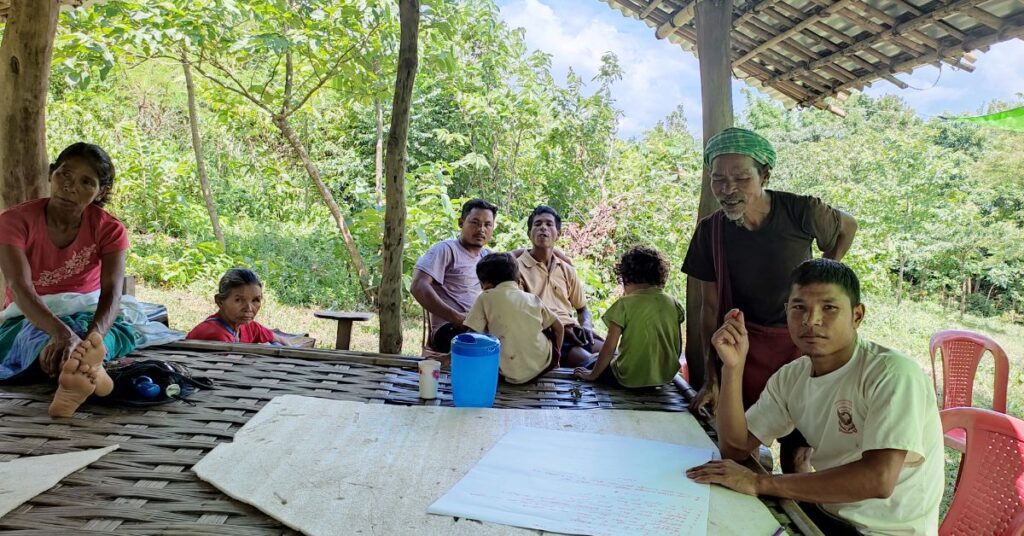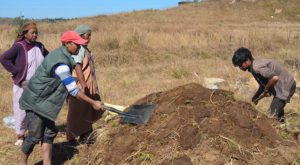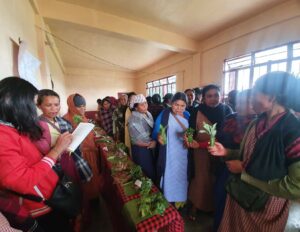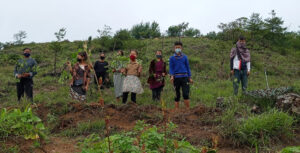A training on Participatory Research was facilitated by team members of NESFAS on July 12, 2022, at Kemragre, under Rongram Block, partner village in West Garo Hills. The ALC members of Kemragre and Rangwalkamgre, participated in the training which is part of the ongoing NESFAS’ project “Empowering Indigenous Communities through Agroecology Learning Circles (ALCs) for resilient, integrated and innovative natural resource management”, which is supported by MBMA and funded by the World Bank.
The training started off with an interactive recapitulation pertaining to the aims of the experiment that the ALC members have been conducting. The two villages are majorly rice cultivators and hence they chose to conduct the experiment on rice pests, that is the stem borer of rice, which cause a great deal of nuisance to their rice crops every year.
The idea of this participatory research is to equip the ALC farmers with the knowledge of assessing their experiments for accurate representation of their readings and findings.

The training followed a detailed step by step manner starting from land preparation till the harvest of the crop. The life cycle of the rice plant with its various growing stages was also discussed.
The method employed by the cluster for their experiment is to mix 8 kilograms of fresh cow dung in 18 litres of water and apply or spray the solution on the rice plants directly on an area covering 1 bigha. This is believed to decrease the pest infestation significantly. The method is also believed to ward off other insects and also keep off the cows from trampling and grazing on the rice plants.
Chekman M Sangma, who is the Community Facilitator of Kemragre, stated his reason for choosing the rice plant for experimentation. “There are many vegetable crops that we plant that are infested with pests, yet we chose to experiment on rice pests, because we feel that rice is more important”, he said.
“We do not use any chemical pesticide or harmful chemical solutions, the method we are employing has been passed down to us by our fathers, and their fathers before them. We hope to keep this practice alive for the years to come,” the community facilitator added.
Currently the cluster is at the stage of transplanting the rice plants from the nursery to the rice fields. The experiment will be conducted at a later stage when the plants grow. It is encouraging to see that our indigenous farmers are making efforts to fight today’s challenges with age-old methods, keeping tradition and culture alive.



